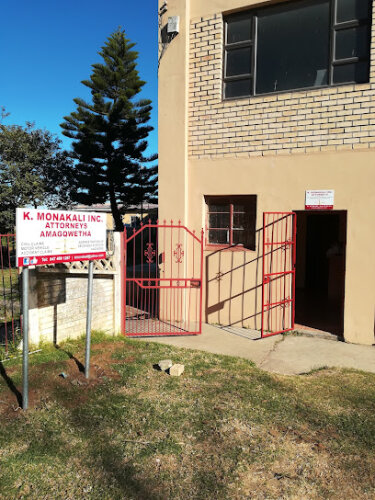Best Wage & Hour Lawyers in East London
Share your needs with us, get contacted by law firms.
Free. Takes 2 min.
List of the best lawyers in East London, South Africa
About Wage & Hour Law in East London, South Africa
Wage & Hour law in East London, South Africa, is governed by national legislation designed to protect workers’ rights and ensure fair treatment by employers. These laws dictate minimum wage levels, regular and overtime working hours, compensation for extra work, wage deductions, and meal and rest breaks. In East London, these laws apply to both employers and employees across various industries, including sectors like manufacturing, retail, agriculture, and domestic work.
Compliance with Wage & Hour law helps ensure that employees receive just compensation for their time and effort, while employers fulfill legal obligations and avoid penalties.
Why You May Need a Lawyer
Wage & Hour disputes can be complex, often requiring expert legal interpretation and assistance. Some typical scenarios where you may require legal help include:
- Unpaid wages or overtime
- Incorrect wage calculations
- Unlawful wage deductions
- Denial of mandated meal or rest breaks
- Disputes regarding employment contracts and working hours
- Dismissal or retaliation for lodging a Wage & Hour complaint
- Issues concerning leave entitlements and public holidays
A lawyer with expertise in Wage & Hour law can help clarify your rights, guide you through the legal process, and even represent you in negotiations, mediations, or court proceedings, if needed.
Local Laws Overview
Key aspects of Wage & Hour laws relevant in East London include:
- Basic Conditions of Employment Act (BCEA): This is the primary piece of legislation that governs minimum wages, working hours, overtime pay, and other employment standards.
- National Minimum Wage Act: Sets the country’s minimum pay rate per hour, updated periodically.
- Sectoral Determinations: Certain industries, such as hospitality, agriculture, and domestic work, have sector-specific wage and hour conditions set by the Department of Employment and Labour.
- Overtime: Employees should not work more than 45 hours per week under normal circumstances. Overtime is limited, requires consent, and must generally be paid at 1.5 times the employee’s normal wage.
- Meal and Rest Breaks: Employees are typically entitled to a one-hour break after five hours of work.
- Wage Deductions: Employers are only allowed to make deductions in specific situations, such as statutory deductions (e.g., UIF) or with written consent.
- Public Holidays and Leave: Employees have the right to paid leave and compensation for work on public holidays, according to the BCEA.
Employers in East London must comply with these laws to avoid sanctions, penalties, or litigation.
Frequently Asked Questions
What is the national minimum wage in South Africa?
The national minimum wage is set annually by the government and applies to most employees, including those in East London. Some sectors may have a higher minimum wage rate. Always check the latest government notice for the current rate.
How many hours can I legally work per week?
The standard maximum is 45 ordinary hours per week. Overtime is allowed but should not exceed 10 hours of overtime per week, and must be paid at the overtime rate.
What is the legal overtime pay rate?
Overtime should be paid at one and a half times (1.5x) the employee’s normal hourly rate, unless otherwise specified by a sectoral determination or collective agreement.
Can my employer deduct money from my wages?
Deductions are only lawful under limited circumstances, such as statutory deductions (UIF, tax, etc.), or with the employee’s written consent.
Am I entitled to breaks during the workday?
Yes. Employees are entitled to a meal break of at least one hour after working for five continuous hours. Shorter breaks may be allowed by mutual agreement.
What should I do if I have not been paid the minimum wage?
You should first raise the issue with your employer. If it is not resolved, you can approach the Department of Employment and Labour or seek legal advice for further action.
Are casual and part-time workers covered by Wage & Hour laws?
Yes. Most provisions in the BCEA and National Minimum Wage Act apply to all employees, including part-time and casual workers.
Is work on public holidays compensated differently?
Yes. Employees who work on a public holiday are typically entitled to double their normal wage for those hours, or a day off in lieu, in accordance with the BCEA.
How do I file a complaint about wage and hour violations?
You can complain to the local Department of Employment and Labour office in East London. They may mediate or investigate the complaint, and further legal action can be taken if needed.
Can I be dismissed for raising a dispute about my wages?
No. Dismissing or penalizing an employee for asserting their legal rights or lodging a complaint is considered unfair labour practice and is prohibited by law.
Additional Resources
If you need more information or assistance, the following resources may be helpful:
- Department of Employment and Labour (East London): The government body responsible for ensuring compliance with labour laws, investigating complaints, and offering mediation services.
- Commission for Conciliation, Mediation and Arbitration (CCMA): Assists with disputes between employers and employees, including Wage & Hour claims.
- Legal Aid South Africa: Offers access to free or affordable legal advice and representation for qualifying individuals.
- Labour Unions: Many workers’ unions provide legal aid and representation for members involved in wage disputes.
Next Steps
If you believe your Wage & Hour rights have been violated or need advice:
- Document your work hours, pay slips, and any communication with your employer about wages or working hours.
- Try to resolve the issue directly with your employer whenever possible.
- If the matter is unresolved, contact the Department of Employment and Labour or CCMA for advice and assistance.
- Consider consulting a lawyer specializing in labour law in East London for personalized legal support.
- Explore resources such as Legal Aid and local trade unions for further help or representation.
Taking prompt action, armed with information and the right support, can help you effectively protect your rights and reach a fair outcome.
Lawzana helps you find the best lawyers and law firms in East London through a curated and pre-screened list of qualified legal professionals. Our platform offers rankings and detailed profiles of attorneys and law firms, allowing you to compare based on practice areas, including Wage & Hour, experience, and client feedback.
Each profile includes a description of the firm's areas of practice, client reviews, team members and partners, year of establishment, spoken languages, office locations, contact information, social media presence, and any published articles or resources. Most firms on our platform speak English and are experienced in both local and international legal matters.
Get a quote from top-rated law firms in East London, South Africa — quickly, securely, and without unnecessary hassle.
Disclaimer:
The information provided on this page is for general informational purposes only and does not constitute legal advice. While we strive to ensure the accuracy and relevance of the content, legal information may change over time, and interpretations of the law can vary. You should always consult with a qualified legal professional for advice specific to your situation.
We disclaim all liability for actions taken or not taken based on the content of this page. If you believe any information is incorrect or outdated, please contact us, and we will review and update it where appropriate.










